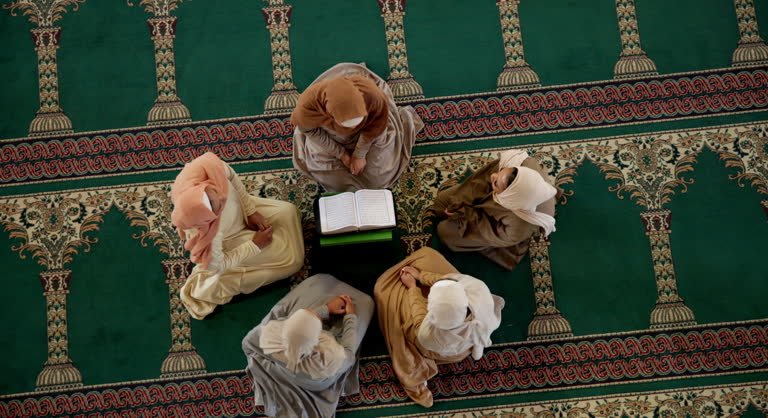CAIR condemns 17-year sentence of Uyghur woman for teaching Quran in China

Quran, talking and group of women in mosque for spiritual worship, faith teaching and Islamic religion from above. Culture, respect and Muslim people on carpet with reading, morning dua and holy book. Creator: Jacob Wackerhausen | Credit: Getty Images
The Council on American-Islamic Relations (CAIR), the largest Muslim civil rights and advocacy organization in the U.S., has strongly condemned the reported sentencing of Seylihan Rozi, a 49-year-old Uyghur Muslim woman in China, to 17 years in prison.
Her sentence allegedly stems from teaching verses of the Quran, Islam’s holy text, to her children and a neighbor.
Rozi was accused of conducting “illegal underground religious activity” and sentenced for teaching prayers recited by Muslims. A Bulaqsu Township Party Committee official told Radio Free Asia that the punishment was due to her so-called “illegal religious activities.”
CAIR, based in Washington, D.C., called for immediate action from the United Nations to protect religious freedoms in China.
Highlighting ongoing oppression, CAIR cited previous incidents, including the re-sentencing of another Uyghur Muslim woman to 14 years in prison last year for teaching the Quran to teenagers.
Human rights groups have repeatedly criticized Chinese authorities for targeting Uyghurs in Xinjiang, punishing them for practicing their faith.
In a statement, CAIR said:
“We condemn this shocking arrest and sentencing for a woman who was merely exercising basic religious rights that should be available to anyone of any faith worldwide. We call on the United Nations to condemn this unjust action by the Chinese government and to take action in defense of all those whose rights are being violated by dictatorial governments.”
Last month, CAIR welcomed new trade restrictions on two Chinese firms, including one accused of enabling human rights violations through surveillance of Uyghur Muslims and other ethnic and religious minorities in China.
In November, CAIR welcomed the addition of 29 Chinese companies to the list of entities using forced labor involving Uyghur minorities.
Also in November, CAIR welcomed a ban on the entry to the United States of products produced by Esquel Group, one of the world’s largest textile and apparel companies, over allegations it uses forced Uyghur labor.

